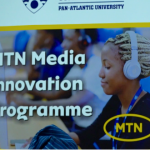To attend a visa interview, there is always an unresolved fear you must conquer—the fear of not fumbling at the interview venue. At this stage or juncture, most people crumble. To conquer this fear, you have to get yourself fully prepared ahead, knowing the right thing to do and even the likely questions you are going to face. For there to be a free flow of communication between you and the interviewer, we have compiled the top ten things you must know to scale through this particular hurdle.
Table of Contents
1. Know the interview language:
Your interview is most likely conducted in the English language, particularly if your country of destination is an English-speaking country. You are required to be fluent and natural in your speech. Your words should flow freely and coherently. Ensure your grammar and tenses are correct. You do not need to use superficial words or words that require one to search through the dictionary over and over again before their meaning is conceived. Be yourself and do not tense up while trying to gain confidence. To build up your self-confidence, you can practice general interview questions with your friends and family members acting as your interviewers. You could also practice English conversations with native speakers to prepare you for the interview. Watching English movies will also be very helpful. This is part of the preparation process.
2. Know your course of study and how it will correlate with your career goals.
This is very necessary. You are not just meant to know the name of the course you are preparing to study; you are required to know the intricacies and be able to understand how it fits into your career plan. This is because, upon completion of your study, it is believed that you are going to build a career out of it. The job role your course fits in, the industry, your plans for the master’s program, and the like are expected of you to know. You are also required to go to the university’s website to study the requirements for the course. Details like the name of the course, credits, professors, length of years required to complete your study, and so on are very necessary. The likely questions could be “Why did you choose this course?” or “What are your plans upon the completion of your course?” Your response should be convincing enough to the interviewer. They want to understand how far you know about your chosen course of study.
3. Know everything about your funding information:
Your interviewer is very keen on your educational sponsor. The person sponsoring the program and his or her financial background are very crucial because you need to be financially ready before applying for your study abroad. You are not going there to suffer from financial incapacity. At least, you should be able to show one year of funds for the program. Few acceptable funds include savings accounts, fixed deposits, and educational loans. In case you have any financial complications or arrangements, seek an expert counselor for better ways to present your case.
4. Ties to your home country and residence abroad:
As a visa applicant, you must be able to prove that you will be willing to return to your home country as soon as your program is over. Things that connect you to your homeland, town, or current place of residence are what ties you to your home country. Your family, job, property, apartment, inheritance, and others are examples of things that connected you to your home country. As a student, they may ask you about your plans for the future concerning your family, job, career prospects, relationships, plans to further your education, and long-term plans for the future, among so many of them. You must have convincing evidence that you are not planning to become an intended immigrant.
5. Maintain a positive attitude and be brief:
You are not the only one to be interviewed, so you are expected to be brief in your explanations. The interviewer does not have all the time and must be able to form his decisions about you within the first few minutes. Be conscious of what you say first, as it is critical to your interview success. Let your answers to each question be precise and succinct. You could pause and think before answering; be fast about it as well. Do not be rude or create a scene if you are denied the visa.
6. Your supporting document should be clear:
Each written document should be clear and the meaning easily understood by the consular officer. You do not need to make it longer to be easily read. Prior visitation to the website of the consulate will be very helpful in understanding what supporting documents you need. Nevertheless, here are a few supporting documents that are common among students:
- Admission letter
- Financial documentation
- Scholarship letters.
- Assistantship
- Any letter issued by the school, sponsor, or organization.
- A letter from your supervising professor that explains your research goals
Your financial documentation must prove that you will be able to live and school in your destination country without any financial hassles. The financial information you provided on your Form 1-20 should correspond with the information given to the consular officer.
7. The requirement for your home country:
Intending students from countries with economic problems or where students usually refuse to return home after studies always find it difficult to get visas. You are more likely to be asked about job opportunities available in your home country. Visit the website of the consulate of your intended country of study to understand the specific requirements of your home country.
8. Your poststudy plans:
Your major aim of going to your destination country is to study rather than to work. Whatever intention to work while studying or after graduation should be incidental to your major aim of the study. Therefore, you should clearly explain that you have plans to return to your home country after the completion of your studies. If, for any reason, your spouse or children are accompanying you to your country of destination, be certain that they may not be able to get employment in some countries, like the USA. You should be able to convince the interviewer of what they intend to do with their time while in the country with you.
9. Your plans for your dependents at home:
If your spouse and children are to remain behind while you travel, you should be able to convince the consular officer how they will support themselves in your absence. This might be a bit difficult if you are the breadwinner or primary source of income. Anyway, you should prepare for that.
10. Dress well:
Although there is no defined or specific dress code for the interview, you are expected to dress decently and not something that makes you look awkward. Your dressing has a way of boosting your self-confidence and avoiding unnecessary distractions.
In general, it is important to know everything possible about your country of destination in order to be fully prepared for any question that might pop up. Whatever you need to know is online, and you can spend a few hours in a day getting yourself updated with every piece of information available. No information is a waste because it might still be relevant to you after you have fully settled in your new country.
Furthermore, keep in mind that the purpose of the interview is to ascertain whether you meet the requirement for issuing you the visa. You must know what type of questions to be asked and your expectations throughout the interview process.
Interesting Ways to Travel Abroad
Believe it or not, there are exciting ways you can travel abroad as a student or even anyone. These tips may not get you traveling for free, but they are certain to help you enjoy your trip and cut costs where necessary.
1. Look for volunteer programs.
Volunteering is a very good way to enjoy your life and feel fulfilled. When you volunteer, you are helping the community and even the world as a whole with that little effort of yours. There are so many volunteer programs that you can join. You may pay to join the program, but your accommodation, feeding, and other personal expenses may be taken care of.
2. Get a part-time job.
A part-time job helps you to take care of some of your financial needs. Not just the money; you are going to have some exciting experiences while you work. If you are on a visa that permits working during your stay, you may talk to an agency to get a part-time job for you.
3. Stay with relatives who live abroad.
If you are fortunate to have relatives that reside abroad, you might opt to live with them. This could help you save money for accommodation and feeding.
4. Travel during off-peak periods.
Off-peak periods in Europe are during winter or fall, depending on your destination. You can research more to find a better time to travel other than the summer, which is the peak period.
5. Apply for teaching programs.
By teaching abroad, you can get paid for doing what you enjoy doing, as well as acquiring some skills along the way. This is sure to have an effect on your resume. If you have a passion for teaching, this can be a better way to make your dream come true.
Traveling abroad for studies has always been the dream of every student, and once you get your visa, you have that accomplished feeling that your dream is coming to fulfillment. There have been numerous success stories regarding this, and yours is sure to be one of them if you are able to get yourself prepared prior to the interview date. We wish you all the best..









